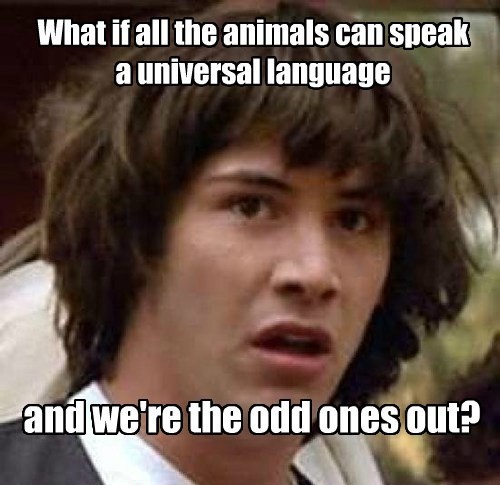It seems that there is always talk of a universal language: a way to communicate with everyone, no matter where a person may be in the world. The simple answer as to why it has not occurred has to do with language’s relationship to culture. The extended answer being that Earth will most likely never have a universal language because of technical, scientific, as well as cultural factors.
In Thomas Devlin’s article, What is Esperanto, and Who speaks it?, he states that there are more than 7,000 languages spoken in the world today. With all of these languages existing around us, a Polish medical doctor, Ludwik Lejzer Zamenhof, created the language known as Esperanto, which was meant to “bring the world together as one (Devlin, 2).”
Esperanto was created on the roots of Latin in order to make it easier for those who speak languages that were born from Latin (Russian,Polish, English, German). Zamerhof’s idea was to receive feedback from others to evolve the language, and not place restrictions within it like other languages tend to do. While Esperanto seemed to have some advantages, those whose first language did not have strong European influences, such as Asian languages, were at a complete disadvantage.
 Language is identity. According to Jason Koebler in his article, Why a Universal Language Will Never Be a Thing, “for many groups of people, having a specific language is to say, ‘I exist’ (Koebler, 3).” Languages are important to culture and the way that those who practice said culture identify themselves. There even some languages, like Basque and Kurdish, that protect and preserve their language through enacting laws.
Language is identity. According to Jason Koebler in his article, Why a Universal Language Will Never Be a Thing, “for many groups of people, having a specific language is to say, ‘I exist’ (Koebler, 3).” Languages are important to culture and the way that those who practice said culture identify themselves. There even some languages, like Basque and Kurdish, that protect and preserve their language through enacting laws.
Languages will continue to evolve. As time passes and new generations come along, language will continue to change. Change can come from differences in pronunciation, new words being invented or borrowed, morphology’s disappearing or the meaning of old words become something different. As we continue to evolve and grow, so do our languages.
There are people who believe that universal language is portrayed not through spoken language, but on other mediums. Some believe music is a universal language; others believe love holds that spot; poetry is also considered to be a universal language. So what would categorize a universal language when comparing these three examples? They are all factors that move people, no matter one’s language or culture. Music, love and poetry may be the universal language. However, spoken language will never become one idea; that’s the beauty of it.



 Services were starting to be made available on mobile devices in the early 2000s. The news was able to reached on mobile phones at the beginning of the new millennium. “Text to” became very popular during this decade as well: “text to vote” on the hit singing show, American Idol, “text to donate”, “text to receive updates” on the presidential campaign. this was a time period where texting started become known and was being used commonly in everyday life.
Services were starting to be made available on mobile devices in the early 2000s. The news was able to reached on mobile phones at the beginning of the new millennium. “Text to” became very popular during this decade as well: “text to vote” on the hit singing show, American Idol, “text to donate”, “text to receive updates” on the presidential campaign. this was a time period where texting started become known and was being used commonly in everyday life.